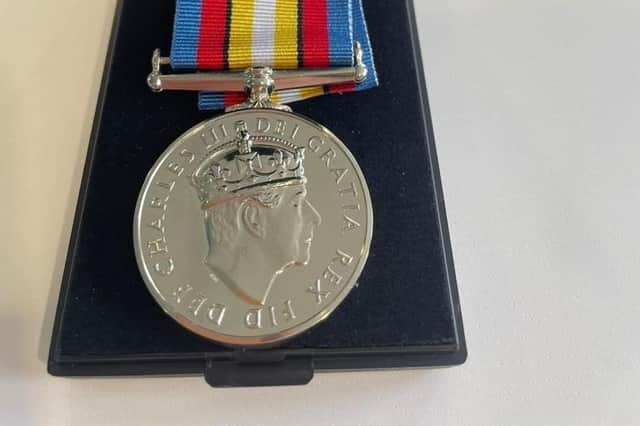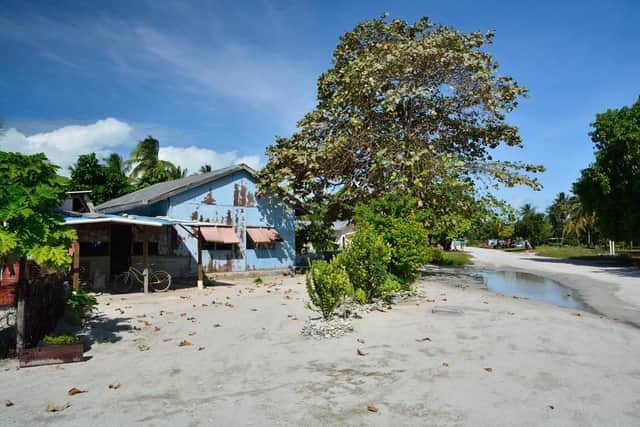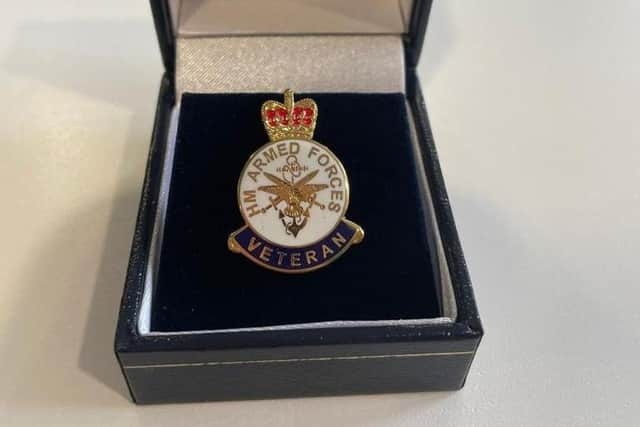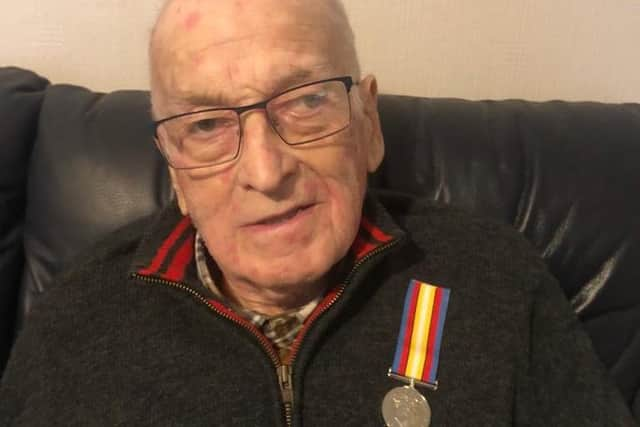Nuclear testing medal for ‘emotional’ 84-year-old


Angus MacLean, from Shawbost, was one of the more fortunate ones to have served on Christmas Island, as he was only there for seven months in a back-up support role.
Just recently, the 84-year-old finally received a package in the post which contained the Nuclear Test Medal and a lapel pin after a decision to award them to the surviving UK servicemen, and their next-of-kin, who had been stationed there, and elsewhere, during and after nuclear testing took place.
Advertisement
Hide AdAdvertisement
Hide AdChristmas Island, now Kiritimati, is part of an island nation called Kiribati which straddles the equator and is approximately 2500miles south of Hawaii. It gained independence from Great Britain in 1979 but was used in the 1950s and early 1960s as part of Operation Grapple by the British, chosen due to its remoteness and small population of about 260 Gilbertese.


The operation for the testing of nuclear bombs came at the height of the Cold War and with the effects of Hiroshima and Nakasaki still fresh in the minds of the geo-political powers.
But that kind of thing was a million miles away from the thoughts of young Angus when he, like many other males of his generation, left the island to do his National Service. He opted for the RAF and after postings to several bases in England, received notification that he was to fly out to Canada, New York, San Francisco, Hawaii and then finally onto Christmas Island.
They only had limited knowledge of what their role would be at a remote outpost on the other side of the world – and absolutely no comprehension as to any future implications for their own safety.
Advertisement
Hide AdAdvertisement
Hide Ad“There were two camps on the island, main camp and port camp” said Angus. “The RAF were given accommodation in the main camp and we gradually settled into a routine.


“But every morning a wee duster plane would fly over the camp spraying a mixture of DDT and paraffin to keep away all the flies, mosquitoes and wasps. It was a very deadly spray, if you ask me and DDT is banned nowadays.
“We knew that a nuclear test had been conducted there but we didn't have any knowledge or understanding of the implications to our health. We could see that the island was polluted with debris, abandoned trucks and burst oil barrels.
“Some of the men were sick coming back to the UK but we had no understanding of why. It's only in the last few decades as it became more apparent that there were health implications that I began to worry myself. I've had lung problems and my consultant wrote on my medical records that I'd been to 'an island in the Pacific'.”
Advertisement
Hide AdAdvertisement
Hide AdMore than 20,000 British servicemen took part in hundreds of Cold War nuclear bomb tests in Australia and the South Pacific and, despite several legal cases, not one of them has ever received compensation.


Angus was one of the more fortunate in terms of health and is still sprightly at 84. He was a steward in the officers’ mess when out there, which at least meant he was a step removed from the actual tests.
“I'd wanted to be a tele-printer operator but failed due to being colour-blind,” he said. “Looking back, I was maybe fortunate to not be working outside with machinery.”
There was another Lewisman posted on the island at the same time as Angus – Murdigan Gillies from South Shawbost. He was 20 miles away at port camp and Angus tells the story of bribing one of the officers with a bottle of gin to gain access to a jeep and, despite not really being able to drive at this stage, off he went on a tour of the island to visit Murdigan.
Advertisement
Hide AdAdvertisement
Hide AdWhen the chance came to leave, Angus put in a request to be posted to the RAF base in Aird, Uig, and on leaving National Service went into the Harris Tweed industry, working as a warper in the mill, a weaver and a crofter.
On receiving his medal, he said: “I felt very emotional thinking about those who aren't alive today to receive their medals – and especially Murdigan Gillies from South Shawbost.”